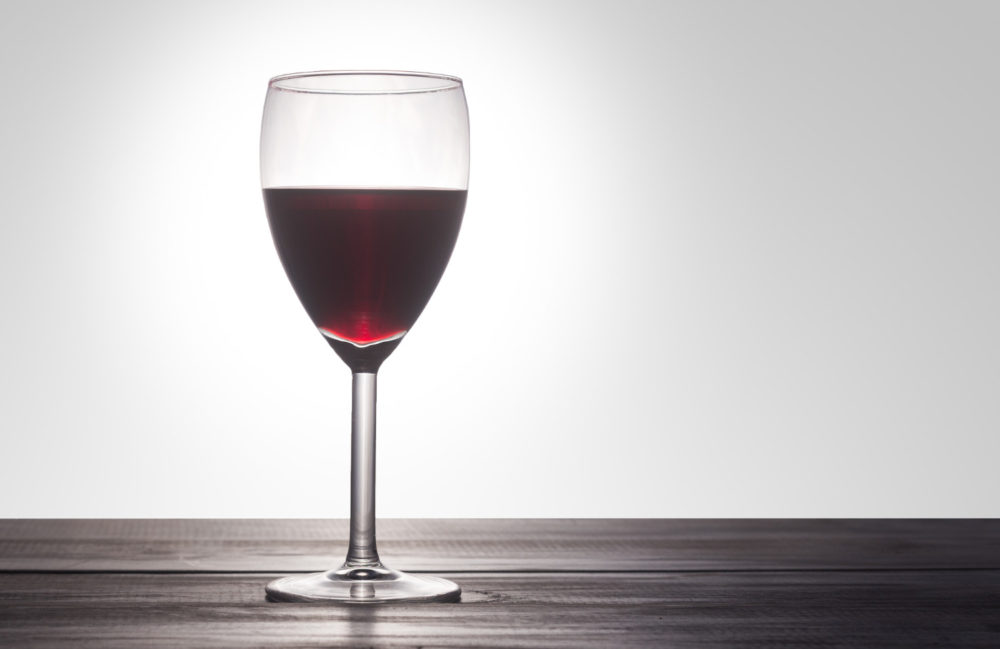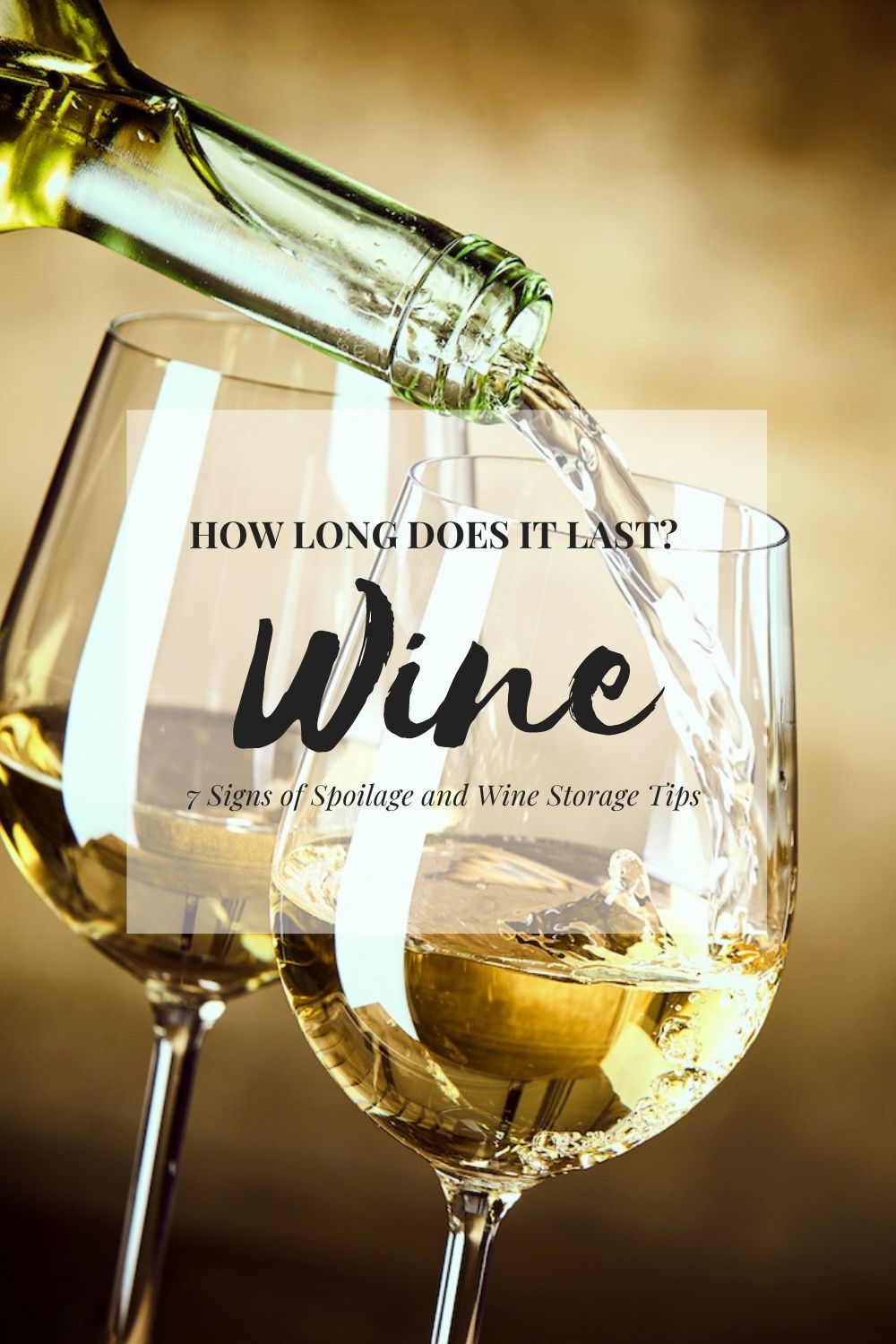How Long Does Wine Last? 7 Signs of Spoilage and Wine Storage Tips
How long does wine last? Red wine can last for at least three years, longer than white wine which can last for one or two years.

“I enjoy cooking with wine, sometimes I even put it in the food…” – Julia Child
Wine has the ability to enhance, intensify and accent the flavor and aroma of food. No, it does not mask the flavor of your dish but rather fortify it.
You can use red wine in this Beef Broccoli with Mushroom recipe or this Traditional Irish Shepherd’s Pie. White wine enhances the flavor of many seafood dishes like these Cedar Plank Salmon and Super Easy Mussel Recipes. To get the best result for your dish, only use wines that you would enjoy drinking.
With the right match, drinking wine can also make food taste better. The famed steak and wine pairing are probably one of the best examples.
Red wine goes well with this Beef Wellington recipe while white wine and seafood with cream and butter sauces like this Cajun Seafood Pasta make a perfect match.
You might have a bottle of wine from last year’s holiday, received one as a gift some time ago or planning to store some bottles for future occasions. Knowing how long wine can last is important. Wine will show changes in appearance, smell and taste over time as it goes bad.
Shelf Life of Wine
Many have a misconception that wine can last forever. While undeniably some types of wine can last for years and even decades, not all wines are created equal.
Every winery makes wine in different ways. Some wines are meant to age well while others are made to be used sooner. More than 90% of the wines in the market or the budget shelf wines are not meant for storage for extended amounts of time.
An unopened bottle of wine will have a long shelf life. Red wine typically last for three to five years while white wine can last up to two years.
Most wines have a recommended cellaring time on their label. This will determine your wine’s aging potential. Wine will start to go bad after the indicated time.
It’s a different story once the bottle of wine is opened. Exposure to air will make the wine lose its aroma and flavor quickly.
Opened white wine will last for three to five days if kept in the fridge and sealed with a cork while red wine can last for three to five days if kept in a cool dark place and sealed with a cork.
All varieties of wine will eventually go bad, some wines are just designed to last longer than other brands.

Signs of Bad Wine
Over time and if not stored properly, wine will show these seven signs of spoilage.
- If your red wine looks dull and brownish, or your white wine has turned a deep yellow or straw color then it has already gone bad. This change in color is often caused by exposure to air or oxidation.
- Your wine has already gone bad if there are fizz and bubbles. Still, wine should not have these bubbles commonly found in sparkling wines or champagne.
- The cork is pushed out of the bottle. This means your wine has overheated.
- If your wine smells like moldy cardboard, wet dog or damp and musty, then it’s already spoiled. This is a sign of your wine being “corked” or when wood fungi from the cork come into contact with the wine.
- Wine tastes and smells like vinegar. Red and white wines past their prime will become vinegary and should be discarded.
- Your wine can also taste flat or stale once it goes bad. It lacks its crisp fruity flavor and become lifeless.
- Wine tastes like soda. If your wine tastes fizzy then it has already gone off.
Though spoiled wine won’t make you sick, drinking bad wine can still give an unpleasant or burning sensation to some people.
Make sure you practice proper wine storage to maximize the quality of your wine and make sure it won’t go bad before you’re ready to drink it.

Wine Storage Tips
Here are some tips on how to properly store your wine:
- Keep your wine in a cool, dark place with an ideal temperature of 45°F to 65°F (since not everyone has a wine cellar). Look for a location with constant temperature and away from light source.
- Don’t store your wine in your kitchen, where hot temperatures can affect your wines. Heat is the number one enemy of wines.
- Don’t store your wine with anything that has a strong smell. The smell will pass through the cork and taint the aroma and flavor of your wine.
- For long-term storage, store your bottles of wine horizontally. This will keep the cork from drying out.
- Keep your wine in the fridge, ONLY if you’re consuming it in a few days. Refrigerator storage will dry out corks over time, which will then develop tiny holes allowing air to seep into the bottle. This applies to unopened bottles of wine.
- DON’T store your wine in the refrigerator if you’re planning to save it for a later date. The common refrigerator maintains a 35°F to 38°F temperature. Wine needs a temperature of 45°F to 65°F for long-term storage.
- Once opened, cork the bottle tightly and store upright. Don’t store your opened bottle of wine on its side which will increase the area exposed to oxygen. You can use a wine bottle stopper in case you misplace the original cork.
- Keep the opened bottle of white wine in the fridge and red wine in a cool dark place.
If consumed in a moderate amount, wine helps boost your immune system, reduces the risk of stroke and heart disease and gives you more amazing health benefits. At StreetSmart Kitchen, we cook with wine all the time.
Here are some cooking inspirations for you:

Roasted Lemon Herb Whole Chicken with Carrots and Onion
Red Wine Beef Broccoli With Mushroom
Shanghai-Style Braised Pork Belly with Hard-Boiled Eggs
Blueberry Cream Wine Slush
About the Author
Sharon Chen is an Integrative Nutrition Health Coach and author of the Complete Sous Vide Cookbook. She believes food not only brings healing but also connection. As the creator of StreetSmart Kitchen, she aims to make meal prep easier than ever and help you find balance, ease, joy, and simplicity in the kitchen as you improve your well-being.




omg This is so helpful. I’ve always wondered this because I don’t have a good aerator and I never just drink a whole bottle in one sitting. Thanks for sharing this, now I know what to look out for.
This was so great to read! I’ve often asked myself how long wine lasts so I’m glad to have learned. I’m so bad at opening a bottle, drinking a small glass, and letting it sit for way too long.
I was just wondering about a bottle I found when I was purging my kitchen…I don’t buy a lot of wine for that reason…I don’t drink it often but it’s nice to know what signs to look for. thanks!
Such great tips!! Although wine never lasts long enough in our home for me to worry about it going bad! haha
Great list to tell the signs – sometimes it’s hard to remember how long we’ve had a bottle for!
-Jennifer
My husband and I don’t drink wine too often and when we do we rarely finish a bottle in one sitting so these tips are super helpful! I had no idea about most of this! I didn’t realize storing a bottle on its side would cause it to go bad more quickly but that makes sense!